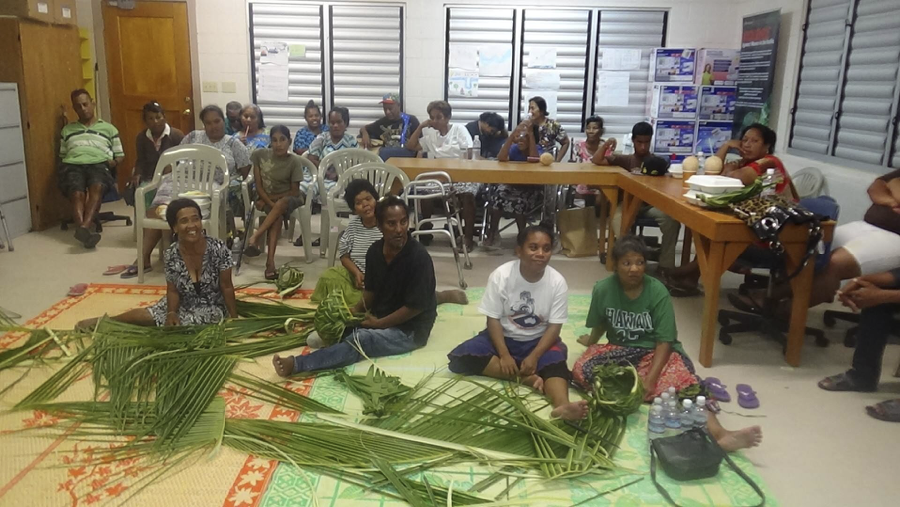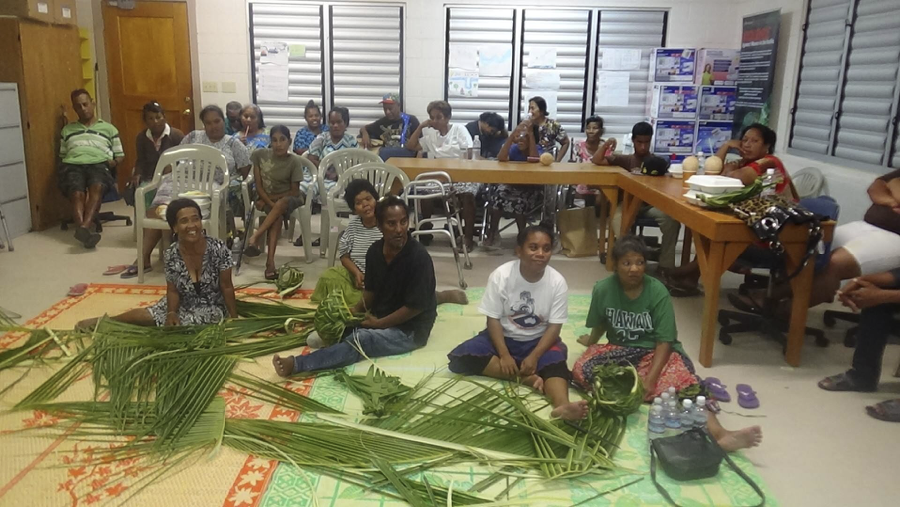
There is a great wave of concern for the future of the indigenous peoples of Marshall Islands in the vast Pacific waters because of their vulnerability to the impacts of climate change and global warming. The inhabitants in the atolls have seen rising sea levels, inundation, severe weather patterns that cause extended drought and threaten the indigenous people’s food security, including their fresh water sources. The matter of the indigenous peoples’ survival including their traditional heritage, cultural and economic practices, possible obliteration of burial places and other historic sites had to be addressed through the project that contributed to the revival and strengthening of traditional practices to adapt to climate change and included vulnerable sectors like people with disabilities.
Most cultures in the Pacific such as the Marshallese have an oral tradition where legends, myths, stories, skills, and knowledge were narrated by ancestors and relayed down to generations. Sadly however, this body of oral literature and culture was not preserved, recorded or institutionalized in most instances. This oversight has caused some of their skills and knowledge to diminish and die with their forebearers and elders. Thus the project’s teaching and learning mode included story telling or direct practice where for instance, older men taught their sons traditional ways of planting or fishing while the older women taught mat and basket weaving to young women. Songs, stories and dances were taught by the elders or experts to the younger ones in community or family gatherings. These skills, knowledge and practices were appreciated and participants had the realization that these are consciously integrated into their cultural way of life and have practical use in climate change adaptation.
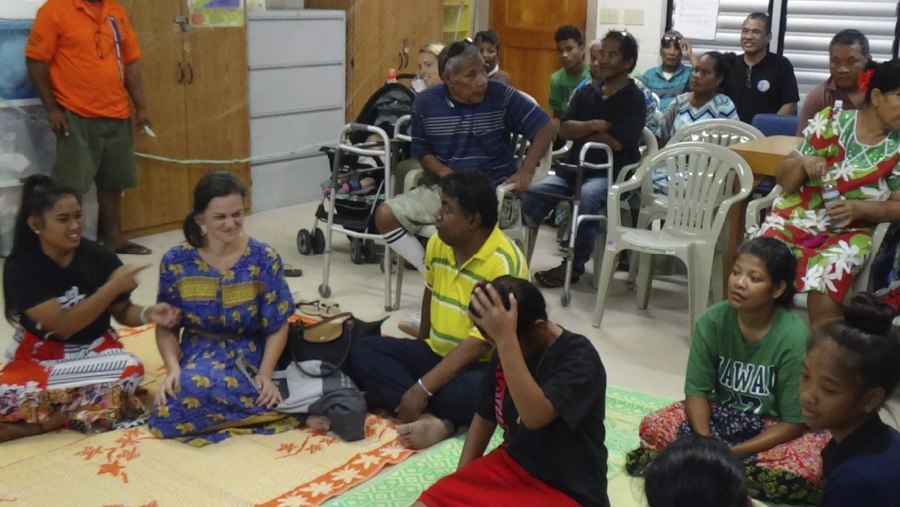
With climate change rearing its menace, it is a race with time. The elders’ transmission of ancient skills and knowledge entailed the indigenous communities’ discernment and decision on the usefulness and applicability of such in the mitigation of the impact of climate change. The project not only enabled intergenerational knowledge transmission and preservation of some of the ancient skills and knowledge that sustained them long before urbanization and technological advancements took over, but also empowered vulnerable sectors.
Cultural proof of the Marshallese’ existence and continuity needed immediate conservation through transfer, practice and documentation. Time is essential in the rapidly changing landscape of the Marshall Islands where ancient art and traditional skills may be the answer for the people’s survival. While community decision making processes involved the elders, the indigenous youth and people with disabilities were encouraged to participate or listen and observe. With the changing of climate comes changing cultural perspectives in the light of climate change adaptation.
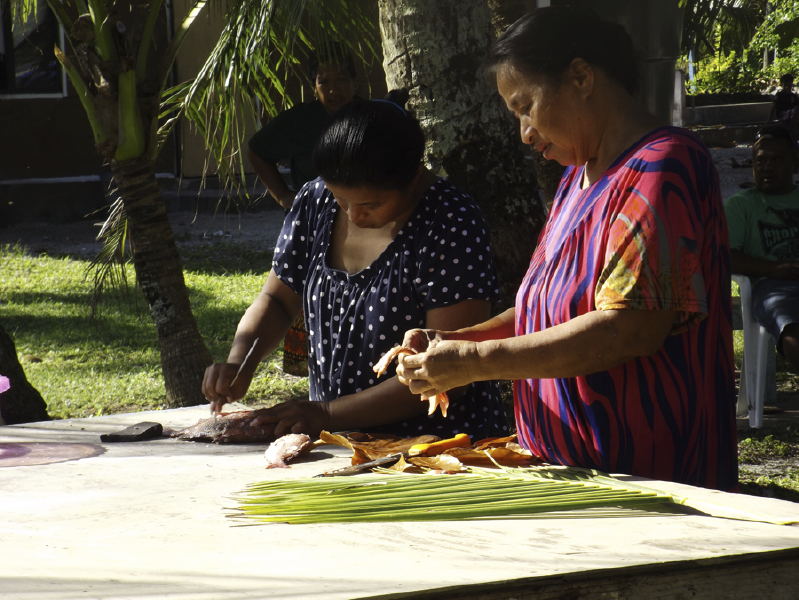
The project’s cultural heritage conservation took on a research approach with documentation and production of short documentaries on storytelling and transmission of traditional skills and knowledge acquired by persons with disabilities, with their consent and intellectual property considered for public dissemination. The actual practice of the indigenous way of learning through oral tradition or story-telling of the elders to the younger generation was encouraged and actualized. Indigenous youths with disabilities gathered to hear and learn from their elders and they, too, had the opportunity of telling their own stories. The indigenous children, youth and women with disabilities were capacitated as members of their community, equipped with skills in crafts and knowledge of their native language. Adapting to climate change comes with reclaiming the traditional wisdom to cope with nature’s changing ways. Waves of change may wash over their landscape, but the Marshall Islands’ indigenous people stand solidly with their roots and identity.
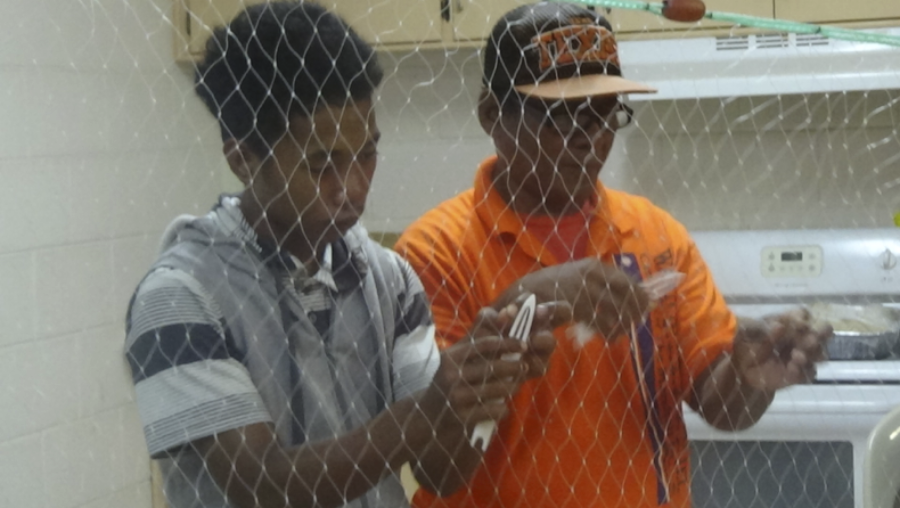
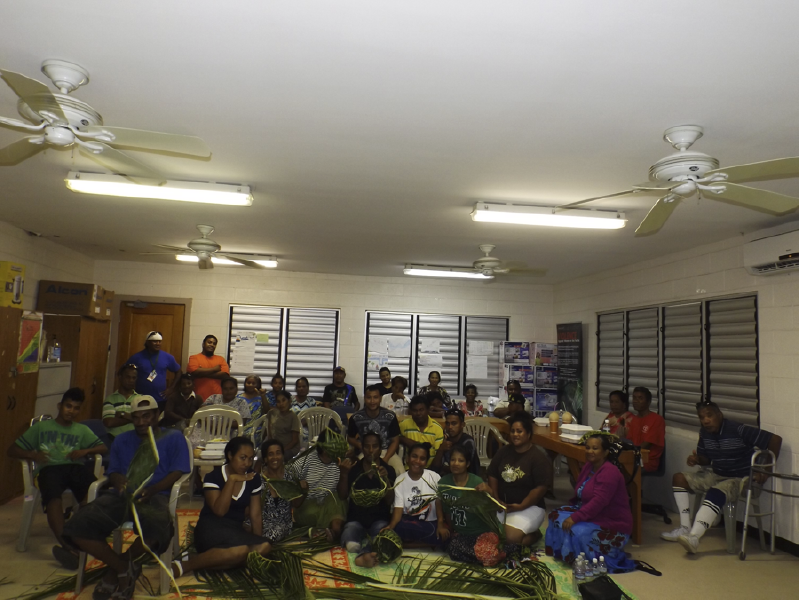
The Project entitled “Strengthening Traditional Practices -Adapting to Climate Change was implemented by Pacific Disability Forum with the support of Pawanka Fund.

